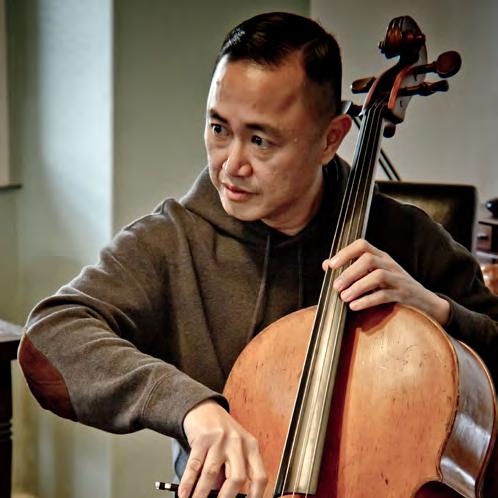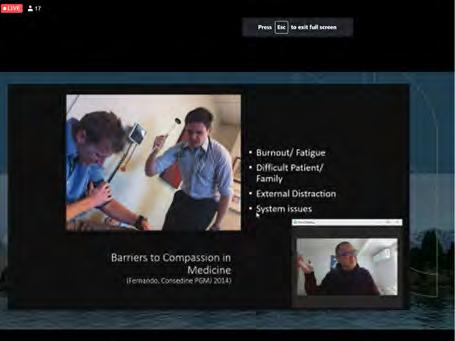
2 minute read
Small kindness have big benefits for wellbeing
Small kindnesses have big benefits for wellbeing
Dr Tony Fernando
Advertisement
A surgeon kneels down, still in his waterproof surgical boots, to massage the calves of a dying patient. Nothing heroic but a small gesture to ease the suffering in a patient’s final moments. In his presentation to the Aotearoa New Zealand annual surgeons’ meeting in Queenstown, Dr Tony Fernando explains how a little act such as this are all that is required to show compassion. A consultant psychiatrist and senior lecturer in Psychological Medicine at the University of Auckland, he specialises in research into sleep medicine, medical compassion and physician wellbeing. His presentation at ‘Surgery 2022: Care in a Crisis’ focused on how surgeons can find compassion even under pressure, when complications occur, for example, in the resus room or emergency theatre. He says medical compassion is vital, both to improving patient outcomes and the wellbeing of healthcare professionals. Studies show patients who have been shown medical compassion have better clinical outcomes, fewer complications and are less likely to make complaints. Medical professionals who practise compassion see benefits, too. They enjoy their work more, find it less tiring and feel happier in themselves. Compassion is not a default setting, says Dr Fernando, and we can easily slip into indifference when under stress. He pointed to data showing 60 per cent of senior doctors report burnout and said this chips away at their ability to act compassionately. Tiredness, external distractions, and systemic issues like bullying and unsupportive management can lead to surgeons showing less kindness, too. Dr Fernando also warned of unconscious biases in who we are most compassionate towards. We view those most like us as more deserving of our compassion than those who we perceive as different. One Aotearoa New Zealand study shows patients lower down the socio-economic ladder receive less kindness.
He says hospital management should look at environmental and systematic issues that could ease the stress load on medical staff.
It is also down to the individual to make change and Dr Fernando said, like any skill, it is possible to learn to be more compassionate. Using anchors to concentrate the mind and keep you focused on the moment can be a useful technique. Dr Fernando said there is a statistically significant correlation between practicing mindfulness and being compassionate. He also urges surgeons to practise “self-compassion”, silencing the inner critic. “There is an epidemic of self-criticism. That voice telling you you’re not good enough. If we don’t address it, it’s a recipe for depression and burnout.”











